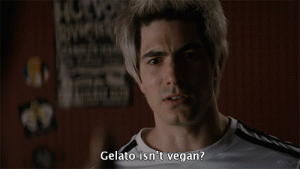
Photo by Luis Ampuero
Sofia Ocegueda
Veganism: a term that may have been heard quite too many times and has been trending worldwide. Veganism refers to a diet that excludes any animal product to be consumed. Additionally, as the population faces the issue of unhealthy eating habits, one constantly hears veganism being discussed as an appropriate alternative. However, this diet might, in fact, run the risk of malnutrition.
A recent study has found the two main reasons as to why veganism has become a diet to follow. This study conducted in Europe and Asia in 2011 questioned young adults about their reasoning behind such diet. The first is the more compelling one, you could say. The love for animals and concern for animal rights has led to a population that shames bacon like no other and questions the origins of every brownie made. The study found that vegans were specifically concerned with not only animal rights but also their welfare as well as experimentation and spiritual symbols.
On the other hand, the second reason why this diet is practiced is the concern for individual health. The same study conducted by researcher Serdar Izmirli et al. found that health was not as prominent as protecting animals, but was still present as an established reason. The seeming obsession with health has led to various individuals clinging to tofu and crying over spilled [soy]milk. However, the issue might be that many do not know of these alternatives. Additionally, many alternative products are more costly. As the following will go over, many vegans, in fact, do not get the sufficient amount of nutrients in their diet.
 (X)
(X)
As taught in numerous health and physical education classes, a healthy body requires a nutritious intake. Cynthia Radnitz et. al observed the level of nutrients in an international sample of 246 vegans in 2014, and hypothesized that individuals following this diet because of health reasons would practice healthier habits. They also examined vegans who were more concerned with ethical issues and were predicted to follow a less nutritious diet. In order to examine their diets, researchers looked for specific foods known to provide health benefits. Such would include items with soy, omega-3 fatty acids and of course, fruits and vegetables. Foods with harmful contents were also taken into account in order to evaluate peoples’ diets.
After analyzing the results, it was found that the hypothesis was only partially correct. Those concerned with ethical issues actually had a longer commitment to their diets and took a greater amount of vitamin supplements to fulfill their recommended nutrient intake. Those who chose to be vegan because of health reasons simply reported eating more fruits and fewer sweets than the other group. This exhibits a general overview of how vegans handle their diets. Let’s dig deeper into the topic!
Like any restrictive diet, veganism requires extra care and effort to still maintain your body as healthy as can be. A study conducted in Germany in 2002 recruited 868 vegans in order to evaluate the average nutrient intake of the vegan community. In addition to nutrients, weight and body mass index were recorded.
In general, vegans tend to have healthy lifestyles, as reported by the participants. However, it was found that an immense quantity of participants had a low consumption of calcium, iodine, and Vitamin B12.
Seventy-six percent of people did not reach the recommended level of calcium in their diet, which makes sense because of the lack of dairy products. The intake of iodine and Vitamin B12 were extremely low, as only 5.3 and 1.3% of the participants reached the ideal level. Protein needs also tended to be below the recommended level, as well as the total energy intake. An additional finding was that a fourth of the participants were underweight, which further supported the emphasis of consuming the appropriate amount of nutrients.
While considering veganism, it may affect not only you but also your family. Children with vegan parents are likely to follow the same restrictive diet, which may not be ideal if not practiced with care. Consider the case of Patient X.
Patient X is a 6-year-old boy of two vegan parents who implemented vegan diet restrictions. As a vegan is to do, he consumed no dairy or egg products. He additionally refused fruits and vegetables and relied heavily on the junk food for his primary nutritional needs. He did not receive any nutritional supplements.
Because Patient X was not receiving the appropriate amount of nutrients, he fell ill and developed the disease, Keratomalacia, an eye disorder that results from vitamin A deficiency. This further led to two corneal transplants, because the lenses had been lost. In the report, his mother admitted to not acknowledging the importance of reading nutrition levels.
This moreover highlights the importance of getting to know your diet, and how essential it is to be informed of what the body needs. One needs to know the benefits, but also the risks. Deficiencies can be extremely harmful as Patient X showed.
The advantages of becoming vegan are present as well. The majority did surpass the recommendation of fruits and vegetables. They also tend to avoid alcohol, as well as smoking. Iron levels were also adequate, as 93% of the group reached the recommended level. In order to excel in their diets overall, vegans must consider taking the supplements that may be absent in their intake.